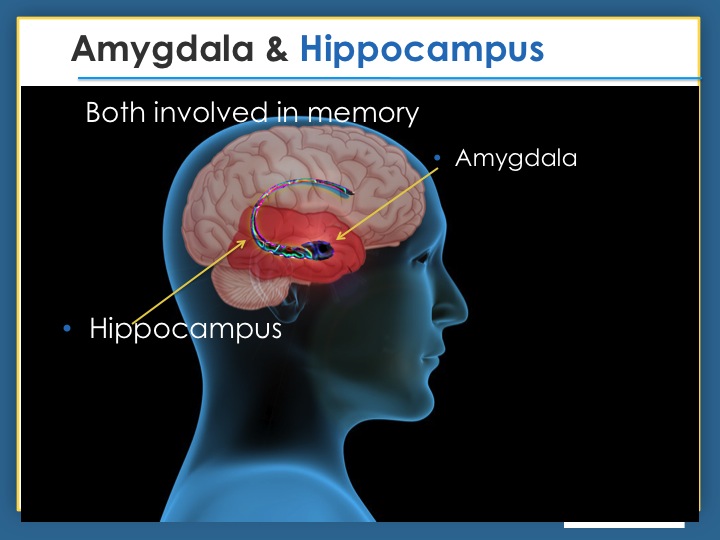Two Types of Memory
Your thinking brain creates memories using a special part of your brain called the hippocampus which is Latin for seahorse because it has a curlicue shape that sort of looks like a seahorse. This is the part of your brain that is responsible for remembering day-to-day things like what you ate for breakfast. This is also the part of the brain that Alzheimer’s disease gradually destroys. These are the memories that you are most used to dealing with. Important events, like an important lecture that you pay a lot of attention to are recorded in detail, unimportant events like eating breakfast get much less detail. These memories fade with time, you remember what you at this morning very clearly, tomorrow the memory will be less clear, next week you may have to struggle to remember anything about it and a year from now you couldn’t remember anything about it if your life depended on it. These memories come to your mind when you call for them, your thinking mind categorizes and cross-references them, you can choose to recall all of the times you ate at a particular restaurant, what happened in freshman year of high school or memories of your mother on summer vacations when you were a teenager.
Up until about 20 years ago scientists thought that this was the only part of the brain that created memories. Then they discovered a little part of the brain called the amygdala, which is Latin for almond because it is about the size and shape of an almond, that your emotional mind uses to create memories. Your amygdala sits quietly, in a sort of dormant state until you have an emotional reaction. Your fight-or-flight reaction releases a special type of adrenaline called noradrenaline in your brain. When this reaches the bottom left hand side of your amygdala it wakes up and begins taking flashback memory pictures of whatever you are seeing, smelling, hearing, feeling, thinking or doing. Most Americans have an amygdala memory of 9/11. I remember exactly where I was when I first saw the second plane crash into the world trade center. I was standing in my kitchen with one arm on the refrigerator looking at the small TV on the counter. Amygdala memories follow a completely different set of rules. Even though it happened years ago it is as clear as if it happened yesterday. In fact, it actually is almost as clear as if it were happening now. This is because amygdala memories DO NOT FADE WITH TIME. They are ‘as clear as if they happened yesterday” rather they occurred days ago, years ago or decades ago.
So when your emotional reactions don’t make sense to you it just means that the reactions are not coming from your thinking brain, the only part of you that you know.
FURTHER READING
Metcalfe, J. and W. J. Jacobs (1998). “Emotional memory: The effects of stress on “cool” and “hot” memory systems.” The psychology of learning and motivation 38: 187-222.
Quirk, G. J. and D. R. Gehlert (2003). “Inhibition of the amygdala: key to pathological states?” Ann N Y Acad Sci 985: 263-272.

Leave a Comment